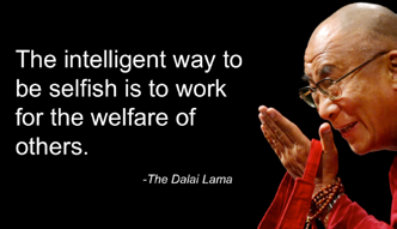Once again, I want to thank everyone who helped plan and execute our 125th Anniversary Celebration. None of this would have been possible without the dedication of the planning committee and the many volunteers who stepped up to help.
We have a wonderful Sangha, and our volunteers do so much more than help out with big events. Many are here regularly, tending to the garden, helping with cleaning, and supporting the day-to-day operations of our temple.
This spirit of volunteerism is part of being in a temple and an organization. While some people describe themselves as spiritual but not religious, the reality is that organized religion has lost some of its appeal over the last two decades. Scandals and some groups’ exclusive beliefs can foster an “us versus them” mindset, creating resistance to new ideas and social progress.
These are pitfalls of organized religion, yet I believe our temple and the Hongwanji temples across the state have avoided them. In fact, we exemplify the benefits of organized religion. For example, Wailuku Hongwanji Mission fosters a strong sense of community, offering people a supportive network during difficult times. This sense of belonging is emotionally and mentally uplifting, creating lasting bonds through shared experiences, values, and traditions.
Our Dharma also provides a moral compass, guiding our decisions through shared ethical and spiritual values. For those who are “lone spiritual beings,” there may be knowledge about the Dharma, but without others, there’s no one to debate finer points of Buddhism or challenge assumptions. When I first joined the temple, George Okamoto would ask me questions about what I knew, believed, or didn’t understand about Buddhism. Over time, my beliefs have strengthened, and I have given much thought to what Buddhism means to me and how I want to live my life.
There are likely many other benefits to belonging to an organized religion, but I’ll focus on one more today. Our temple actively engages in charity and community service—whether it’s providing food to the homeless, offering daycare, teaching Japanese language classes, supporting causes like Peace Day, or celebrating cultural events like Maui Matsuri. These initiatives would not be possible without the volunteers who worked so hard, including those of you who helped make our 125th anniversary celebration a success.
The impact of our volunteers is felt within the temple, the Maui community, and in each individual’s life. Volunteering is deeply rewarding, giving us a sense of purpose and fulfillment. It also offers the chance to learn and develop skills in leadership, communication, organization, and teamwork. These skills not only enrich our personal lives but also, in my case, help with my professional recertification as a Project Management Professional, which I need to renew every three years. The work I did for the 125th Anniversary was essentially managing a project.
Studies have shown that volunteering can reduce stress, combat depression, and enhance mental well-being. In some cases, the physical activity involved can even improve health and increase energy.
Volunteering also connects people with shared values, fostering new friendships and broadening social and professional networks. It gives us a better understanding of others’ challenges, building empathy and cultural awareness. Volunteerism fosters unity and cooperation within communities. The first time I helped clean the temple, I felt a sense of pride and ownership, and with it, a deeper connection to our community. Volunteers act as role models, especially for young people, inspiring others to engage in service and positive social behavior.
As our temple considers new uses for the old YBA building, we envision a space that will benefit the entire community—not just our temple. This theme of community aligns with our volunteer efforts, which help boost morale and pride, fostering a stronger sense of identity and belonging.
Volunteerism can be transformative for both individuals and society. By promoting compassion, resilience, and a shared purpose, it strengthens communities and our larger social structure, helping build a more connected, supportive, and sustainable world.
Of course, those who identify as spiritual but not religious are free to volunteer in their communities, and I’m sure many do. But being part of a group amplifies the impact of individual efforts—just like a workout buddy, having partners in any endeavor helps keep us on track, pushing us to do more and better things together.
